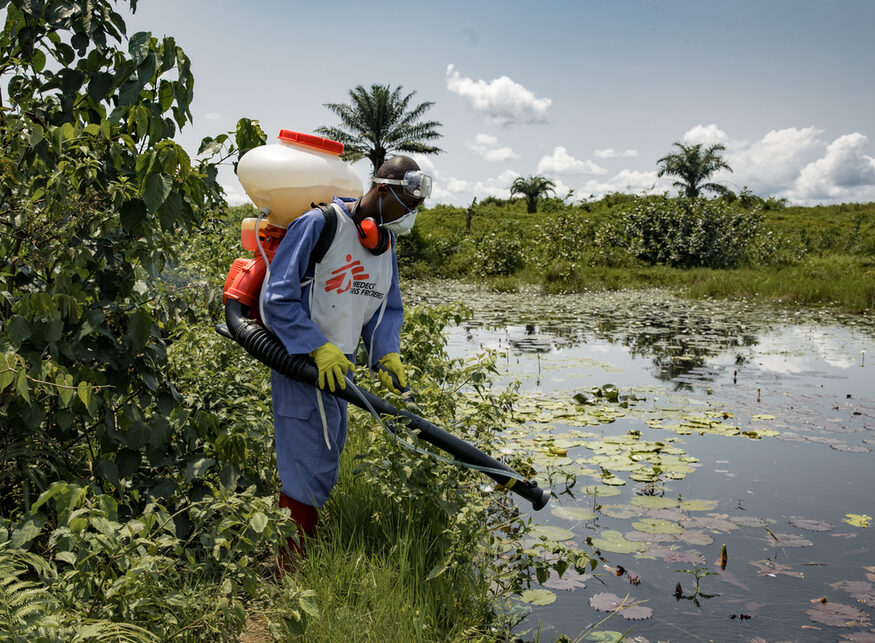From Dengue to Malaria and Lyme. In Parliament, MSF expresses its concern about these mosquito- and tick-borne diseases. Humanitarian Aid sees the consequences of the climate crisis in its advisory rooms every day. Rising temperatures could allow life-threatening diseases to re-emerge in countries where they were previously eradicated.
New habitat for mosquitoes
More and more people are suffering from severe weather conditions. Think longer dry spells, but also more rainfall and less cold winters. In these conditions crops fail and food shortages arise. At the same time, mosquitoes can breed in more and more areas. MSF treats an increasing number of patients suffering from acute malnutrition and diseases such as malaria. Malaria mosquitoes do appear in areas where the disease was not present before or rarely occurred. The tiger mosquito, which can cause dengue, chikungunya and Zika, has already established itself in popular holiday destinations like Spain and Italy. Italy has already experienced two outbreaks of chikungunya, affecting hundreds of people.
Malaria season is 1.5 months longer
Not only the habitats of mosquitoes and ticks are changingAnd; Because of the warmer temperatures, the insects come out of hibernation earlier in the year and remain active until later in the fall. Thus mosquitoes can produce several generations per year. In different parts of Africa, MSF teams see that the season when the malaria mosquito thrives lasts for more than a month and a half. The teams therefore find it surprising that the effects of the climate crisis on people’s health are still receiving insufficient attention, also in the Netherlands. During a House roundtable discussion on the International Climate Strategy (IKS) in March, the aid organization voiced its concerns.
Cabinet opportunities
MSF calls for special attention to combat malaria. And the disease still claims more than 619,000 deaths each year, more than 90% of them on the African continent. At least 8 out of 10 malaria patients treated by the relief organization are children under the age of five. Global warming will only increase these numbersAnd Vector diseases such as malaria will cause increasing health problems. Not only are there opportunities for government there, but there are also responsibilities. The Netherlands must act: the climate crisis will have an enormous impact on the spread of tropical and local diseases. And the countries that have contributed the least to the crisis are already the hardest hit.
This concerns us all
The climate crisis, along with travel and increased globalization, plays a significant role in the spread of tropical infectious diseases. Doctors without borders So you not only provide medical assistance, but also work hard to prevent diseases. Through information and vaccination campaigns, and by sensitizing policymakers to the needs. They, too, should do everything they can for the health of the people. The climate crisis concerns us all.

“Total coffee specialist. Hardcore reader. Incurable music scholar. Web guru. Freelance troublemaker. Problem solver. Travel trailblazer.”







More Stories
GALA lacks a chapter on e-health
Weird beer can taste really good.
Planets contain much more water than previously thought